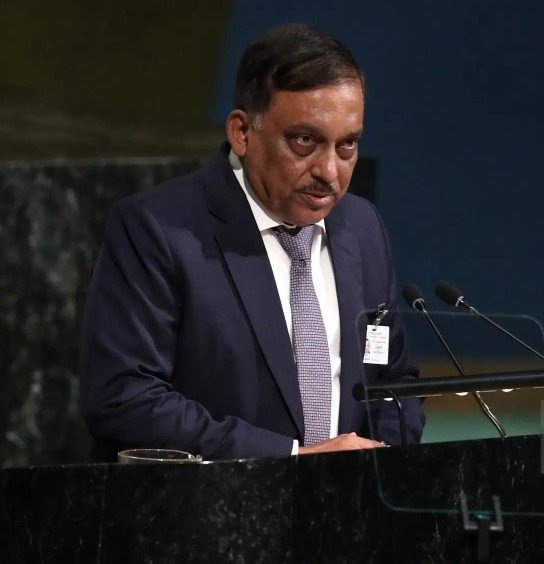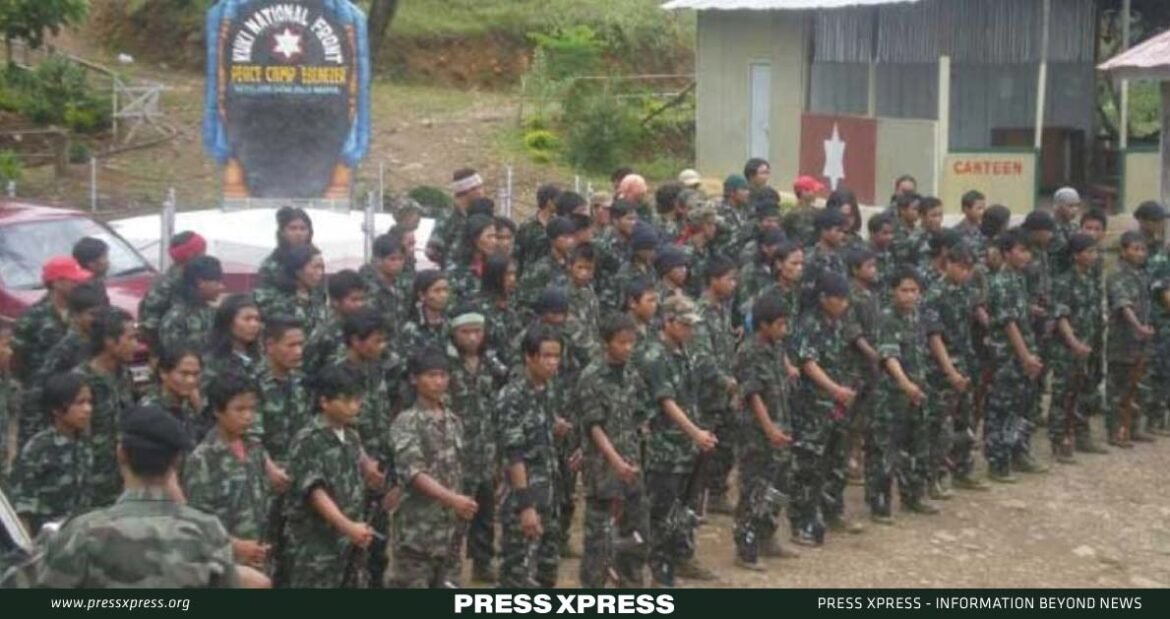Bandarban, a remote and scenic region of Bangladesh, has been thrust into turmoil following a series of brazen bank robberies carried out by Kuki insurgents, members of the Kuki-Chin National Front (KNF). Over the course of two days, these rebels targeted three separate banks.
You Can Also Read: BANGLADESH STARTS COMBING OPERATION TO DISARM KUKI TERRORISTS
Seizing cash, firearms, and even taking a bank manager hostage, the KNF also engaged in a fierce gunfight with security forces. The attacks have disrupted the daily lives of residents, the government, meanwhile is mobilizing in response.
Origins of the Kuki-Chin National Front
To understand the roots of this conflict, one must delve into the history of the Kuki-Chin National Front (KNF), a separatist group that has operated in the Chittagong Hill Tracts for decades. Originally a non-profit organization, the KNF transformed into a militant entity in 2017, claiming to fight for the rights of several ethnic tribes, including the Bom, Pangkhua, Lusai, Khumi, Mro, and Khiang.
These diverse groups share a common linguistic and cultural heritage, residing in a region that spans across Bangladesh, Myanmar, and India. The KNF’s military wing, the Kuki-Chin National Army (KNA), has been implicated in numerous violent acts, from attacks on Bangladeshi forces to assaults on local authorities.

The group’s leadership includes figures like Nathan Bom, a local educated leader with a strong background in regional ethnic activism, who has even contested national elections as an independent candidate. At the heart of the KNF’s grievances lies their opposition to the Chittagong Hill Tracts Peace Accord, which they claim favors the Chakma tribe over others, perpetuating conflict and instability in the region.
Daring Bank Heists and Escalating Violence
The recent incidents in Bandarban have escalated tensions to new heights. Over two nights, Kuki insurgents orchestrated a series of daring bank robberies, targeting the Sonali Bank and Krishi Bank branches. With meticulous planning, they cut power lines before storming the premises, assaulting staff, and making off with cash and firearms.
The attacks began at night, with over 100 insurgents descending upon the Sonali Bank in Ruma, taking the manager hostage in the process. The following day, similar scenes unfolded in Thanchi, where robbers looted another Sonali Bank branch and the Krishi Bank, firing shots to create panic among bystanders.
Security forces, including the police and the Border Guard Bangladesh, responded swiftly, engaging in a fierce gunfight that lasted over an hour in Thanchi Bazar. While the bank manager was eventually freed, the incidents have left the community reeling, prompting intense investigations aimed at capturing the perpetrators and recovering the stolen goods.
Local Impact and Lingering Fear
The bank robberies in Bandarban have had a profound impact on the local community, leaving residents gripped by fear and uncertainty. Many families have temporarily fled their homes, seeking refuge in areas deemed safer from the conflict zones.
Local businesses have also borne the brunt of these disturbances, with shops closing early due to safety concerns, and the vital tourism sector experiencing a sharp decline in bookings as visitors steer clear of the area, jeopardizing the livelihoods of many.
Government Mobilizes
“We will do everything necessary to bring the situation under control. Police and BGB have been carrying out their duties. If necessary, Bangladesh Army will also join the operation against Kuki Chin and other militant outfits,”
– Asaduzzaman Khan Kamal, Home Minister

Recognizing the gravity of the situation, the government of Bangladesh has mobilized its security apparatus in response to the bank robberies in Bandarban. Home Minister Asaduzzaman Khan Kamal has detailed the involvement of the police and the Border Guard Bangladesh (BGB), who have launched operations aimed at apprehending the culprits and securing the area.
Authorities have filed cases against the perpetrators under serious charges, including the Anti-Terrorism Act and the Special Powers Act, signaling their determination to crack down on the insurgency. The Home Minister has assured that all efforts are focused on restoring order, even hinting at the possibility of deploying the Bangladesh Army if necessary.
High-ranking officials, including the Inspector General of Police, have visited Bandarban, overseeing the situation and coordinating efforts directly from the affected areas. The government’s swift and structured response aims not only to deter further violence but also to reassure the local population and stabilize the region.
Motives and Implications: A Complex Web
The motivations behind the Kuki-Chin National Front’s actions in Bandarban are multi-faceted and deeply rooted in political, economic, and social factors. At their core, these bank robberies reflect the group’s pursuit of autonomy for the Chittagong Hill Tracts, with these violent acts serving as attempts to assert control and influence over the region.
From a financial perspective, the robberies provide critical funding for the KNF’s operations, as armed groups often resort to such methods to sustain themselves. The looting of firearms also suggests intent to bolster their military capabilities against Bangladeshi forces.
However, the implications of these actions extend far beyond the immediate impact on the banks and their employees. They undermine regional stability, posing significant challenges to law enforcement, and strain the local economy, disrupting daily life and leading to a cycle of fear and displacement among civilians.
Strategically, these high-profile attacks may also be aimed at drawing attention to the KNF’s cause and pressuring the government into negotiations or concessions. However, such tactics risk escalating the conflict further, potentially prompting an intensified military and police response against the insurgents.
A Path Forward
As Bandarban grapples with the aftermath of these events, it becomes clear that the path forward is fraught with challenges. The road ahead is undoubtedly arduous, but it is a journey that must be undertaken with patience, resilience, and a genuine desire for stability and security.
The goal is clear: to ensure the safety and well-being of Bandarban’s residents, and to transform this region from a battleground into a thriving, harmonious community where diversity is celebrated, and conflict is replaced by sustainable development and lasting peace.


